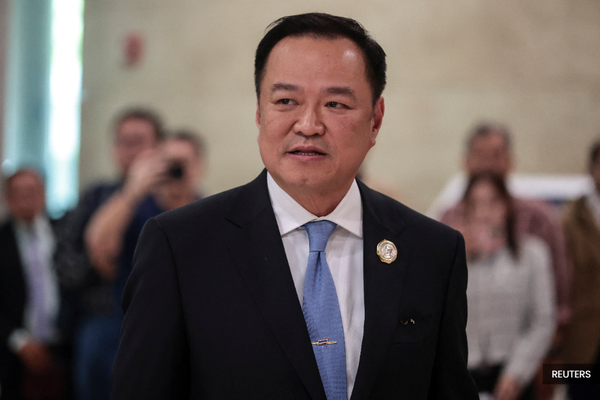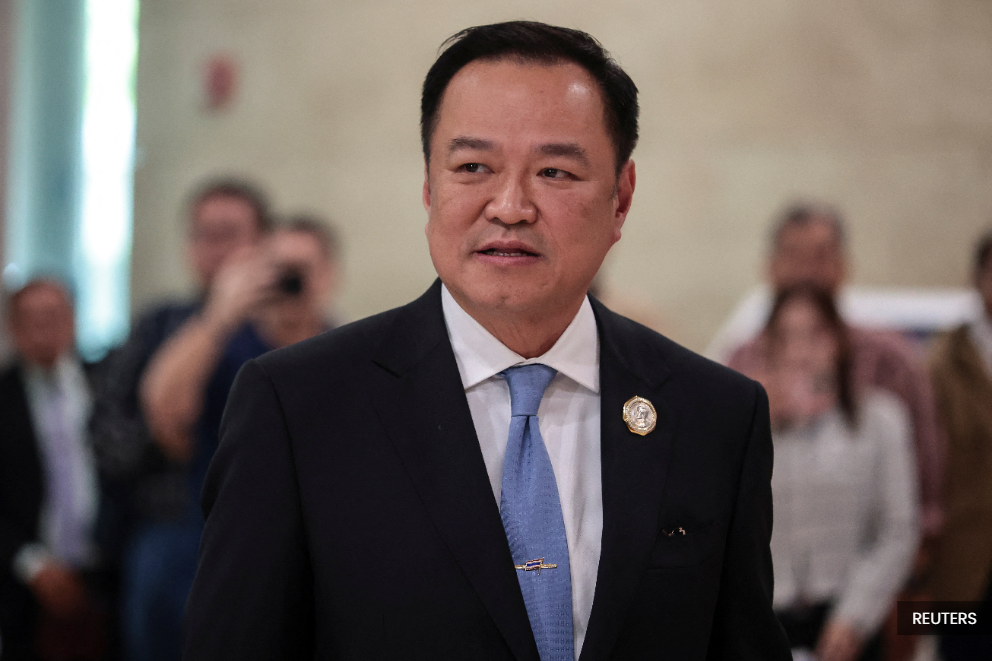BANGKOK, Sept 15 — Thai Prime Minister Anutin Charnvirakul said on Monday that the strength of the baht currency needs to be urgently addressed and that it would be discussed later in the day.
Speaking after a meeting with the Federation of Thai Industries, Anutin said he would also seek royal approval for his new cabinet line-up later this week.
Anutin, who won a parliamentary vote this month with an overwhelming majority, has only four months in power before he calls an election, as per an agreement between him and the largest party in parliament that backed his premiership bid.
He faces an uphill task of turning around an economy grappling with US tariffs, high household debt and weak consumption.
Anutin’s incoming cabinet includes senior finance ministry official Ekniti Nitithanprapas as Finance Minister and economy czar.
Other members are Auttapol Rerkpiboon, the former head of the state-owned energy giant PTT Group who will oversee energy, and Suphajee Suthumpun, former chief executive of hotel operator Dusit Thani, who will serve as Commerce Minister.
Speaking about his meeting with the industry federation, the prime minister said, “We had a long discussion and listened to their needs and urgent matters.”
Incoming Finance Minister Ekniti will discuss the strength of the baht further with the federation later on Monday, Anutin added.
The baht traded at 31.74 per US$ dollar at 0623 GMT, after hitting a more than four-year high of 31.57 last week.
It has appreciated by 7.9 per cent so far this year, making it the second-best performing currency in Asia after Taiwan’s dollar.
Businesses, including rice traders, have expressed concerns about the baht's strength and have urged policymakers to take urgent action to address the issue.
The industry federation said on Monday that a rate of 34-35 baht per dollar would be more appropriate for the Thai economy.
Southeast Asia’s second-largest economy is projected to expand by 1.8 per cent to 2.3 per cent this year, according to the state planning agency, and is expected to slow down sharply in the second half of 2025 due to the impact of US tariffs.
Thailand’s growth of 2.5 per cent last year lagged its peers.
Anutin’s government is expected to be supported by further cuts in interest rates later this year, under a new governor.
The central bank last month cut its key rate to a near three-year low of 1.50 per cent. The next rate meeting is on October 8.
The central bank is expected to lower the key rate by a further 50 basis points, bringing it to a terminal rate of 1 per cent by the end of 2026, BMI said in a report.


